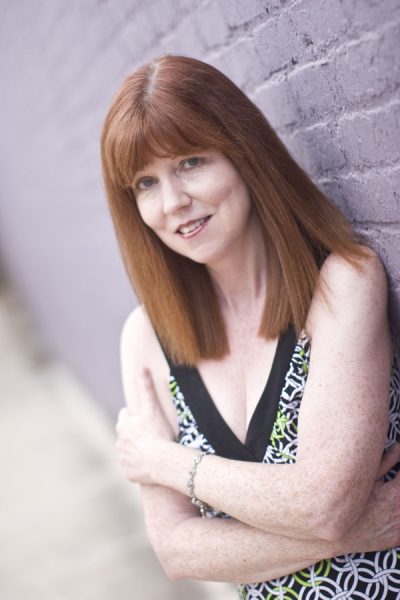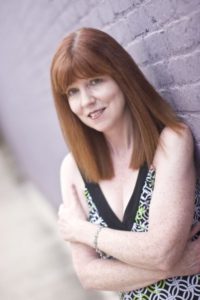Julie Kane
Boston-born Julie Kane was appointed the 2011-2013 Louisiana Poet Laureate.

Courtesy of Julie Kane.
A portrait of contemporary poet and scholar, Julie Kane who was appointed Louisiana Poet Laureate for the 2011–2013 term.
Julie Kane is the 2011–2013 Louisiana poet laureate. Her appointment by Governor Bobby Jindal on April 28, 2011, made her the most recent poet to hold the post since it was first established in 1942 and the third poet to hold the position in the current peer-selection process overseen by the Louisiana Endowment for the Humanities and governed by State of Louisiana Statutes 49: 171-173. The two previous peer-selected poet laureates were Brenda Marie Osbey and Darrell Bourque.
Kane was born in Boston in 1952 and grew up in Massachusetts, upstate New York, and New Jersey. At Cornell University in the undergraduate writing program she studied with A. R. Ammons, William Matthews, and Robert Morgan. She then entered Boston University, where she was one of Anne Sexton’s graduate poetry students. By the time she was twenty-two she had won first prize in the college poetry competition sponsored by Mademoiselle magazine and was the first woman awarded the George Bennett Fellowship in Writing at Phillips Exeter Academy in Exeter, New Hampshire.
She moved to Baton Rouge in 1976 and worked for two years as a grant writer in the federal “War on Poverty” program, a job she says opened her eyes to the political realities of poverty and helped ground her in living in the real world. In 1978 she moved to New Orleans and worked as a technical writer and editor. She fell in love with New Orleans culture: the music, the food, the festivals, the palm trees and tropical flowers, and especially the rich blend of ethnic traditions.
A move to the Carrollton area of the city brought her closer to the poets, musicians, and the arts culture of the Maple Leaf Bar, where poetry readings are an every-Sunday occurrence, and it is then that she says she “began to write about the city in earnest.” Here she met and began a close association with the legendary poet and poetry advocate Everette Maddox and sought out performances by the idiosyncratic pianist James Booker.
In 1991 she began work on a doctorate in English at Louisiana State University, commuting to classes in Baton Rouge from New Orleans. In 1995 she moved to the small town of St. Gabriel, Louisiana, where she found it easier to work without the city’s distractions, at first as a teaching assistant and then as managing editor of a science journal. At the same time she was coauthoring a nonfiction Vietnam memoir, Counterpart: A South Vietnamese Naval Officer’s War, with Kiem Do, formerly a high-ranking officer in the Vietnamese Navy. The book was published in 1998 and became a History Book Club featured alternate. In 1999 Kane defended her dissertation on the villanelle and received her doctorate degree. She says that those years in the 1990s taught her about “the discipline necessary to accomplish major writing projects.” Since 1999 she has lived in Natchitoches, Louisiana, where she teaches at Northwestern State University.
Poet Maxine Kumin chose Kane’s Rhythm and Booze (2003) as her selection for the National Poetry Series, and the book went on to become one of the four finalists for the 2005 Poets’ Prize. Poet Dave Smith says the poems in this collection are “[P]art Ray Charles and Philip Larkin, part Dorothy Parker and Barry Hannah, some Mae West and some Miles Davis [and] so much fun they stick like the blues behind them.” Prior to this work Kane had published two chapbooks in England and a first collection, Body and Soul (1987), with a New Orleans regional press. Kane’s third poetry collection, Jazz Funeral (2009), was judge David Mason’s selection for the Donald Justice Poetry Prize.
Kane has also been the recipient of a Fulbright Scholarship, an Academy of American Poets Prize, two New Orleans Writer-in-Residence terms at Tulane University, a Glenna Luschei Prairie Schooner Poetry Award, the Open Poetry Sonnet Prize, and a Pushcart nomination.
Kane considers herself a member of the New Formalist movement in American poetry, even though she says “certain members of that group would object to my use of slant rhyme, roughened meter, and sometimes-raunchy subject matter.” Her poems often center on themes of the breakdown of modern relationships or the intersection of identity and place—the cold, unforgiving North of her Irish Catholic girlhood and the warm, sensual South of her adult years figuring as the two poles of fate versus free will, inescapable tragedy versus redemption through an act of grace.
She is widely anthologized, with works appearing in Poetry, A Penguin Pocket Anthology, edited by R. S. Gwynn; The Book of Irish American Poetry from the Eighteenth Century to the Present, edited by Daniel Tobin; I Never Promised You a Valentine: Poems for Young Feminists, edited by Carol Ann Duffy; The Book of Hopes and Dreams, edited by Dee Rimbaud; Kiss and Part: Laughing at the End of Romance & Other Entanglements, edited by Gail White; Call Down the Moon: Poems of Music, edited by Myra Cohn Livingston; Immortelles: Poems About Life and Death by New Southern Writers, edited by Thomas Bonner and Robert Skinner, and Uncommonplace: An Anthology of Contemporary Louisiana Poems, edited by Ann Brewster Dobie.
Kane’s work as a nonfiction writer, editor, and translator is also notable. In addition to the Kiem Do memoir, she published Umpteen Ways of Looking at a Possum (2006), a collection of poems and essays about the late Everette Maddox, coedited with Grace Bauer, and one of three finalists for the 2007 Southern Independent Booksellers Alliance Book Award in Poetry. She has also edited the post-1900 poetry selections for Voices of the American South (2005), an anthology of Southern literature. Her translation work includes poetry translations from the French of Victor Hugo and from the Lithuanian of Tautvyda Marcinkevičiūtė.
Among the journals featuring her essays on poetry and literature (included or forthcoming) are Twentieth Century Literature, Literature Film Quarterly, Modern Language Quarterly, Dictionary of Literary Biography, The Princeton Encyclopedia of Poetry and Poetics; Southern Writers: A New Biographical Dictionary, Companion to Twentieth-Century British Poetry, and Cambridge Encyclopedia of the Language Sciences.
